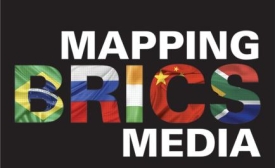china
Hailing the smooth development of the relationship over the 23 years since the establishment of diplomatic ties, Xi said the two sides should continue supporting each other on their development paths, core interests and efforts for prosperity.

Security concerns between states can hinder effective public diplomacy.
New Delhi: Two lifesize paintings of Mahatma Gandhi and a watercolour depicting Prime Minister Narendra Modi with Chinese President Xi Jinping are among the array of artworks by a group of Chinese artists on display here. As part of celebrations to commemorate 65th anniversary of establishment of diplomatic ties between China and India, the exhibition of artworks was unveiled late last evening
Russian President Vladimir Putin has been zipping in and out of Central Asia’s capitals, determined not to let the five Stans – Kazakhstan, Kyrgyzstan, Tajikistan, Turkmenistan and Uzbekistan – slide out of Moscow’s orbit. “For Russia, it is about maintaining influence, economic and cultural, and maintaining Central Asia as a security buffer.”
“China is aware it has to engage in a battle of public opinion and shape the narrative in its favor given the weak legal case it is standing on,” Del Rosario said, adding that the Philippines chose to pursue international arbitration “to preserve a valued friendship” with China.

Global communications scholars Kaarle Nordenstreng and Daya Kishan Thussu have published a new book Mapping BRICS Media, a comprehensive anthology that analyzes the impact of of BRICS media on the 21st century global media and communications landscape.
China’s public offer to mediate peace talks between the Taliban and the Afghan government marks a notable departure in Chinese foreign policy. It is the first time Beijing is taking a genuine leadership role, on its own initiative, on a geopolitical issue both sensitive and significant.
A conservative Russian nationalist, Putin has lamented the break-up of the old Soviet Union, not because he regretted the disappearance of communism, but because of the severing of the numerous and deep economic, linguistic, social, and cultural connections that linked most of the fifteen constituent republics of the old USSR.







